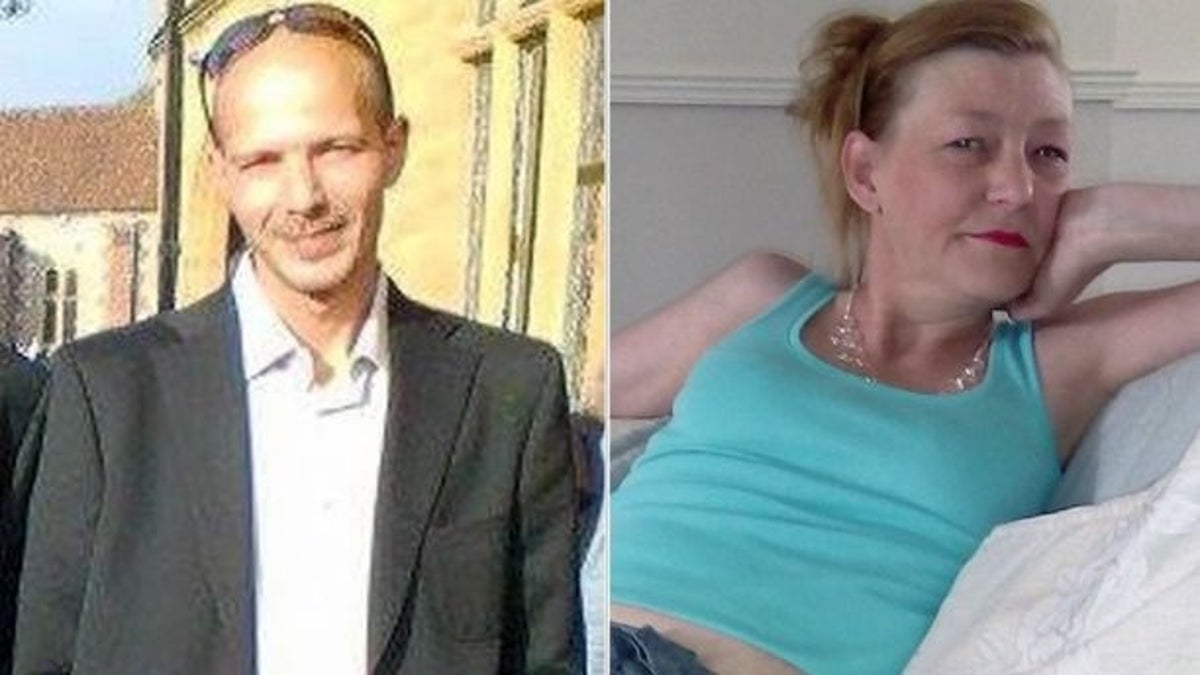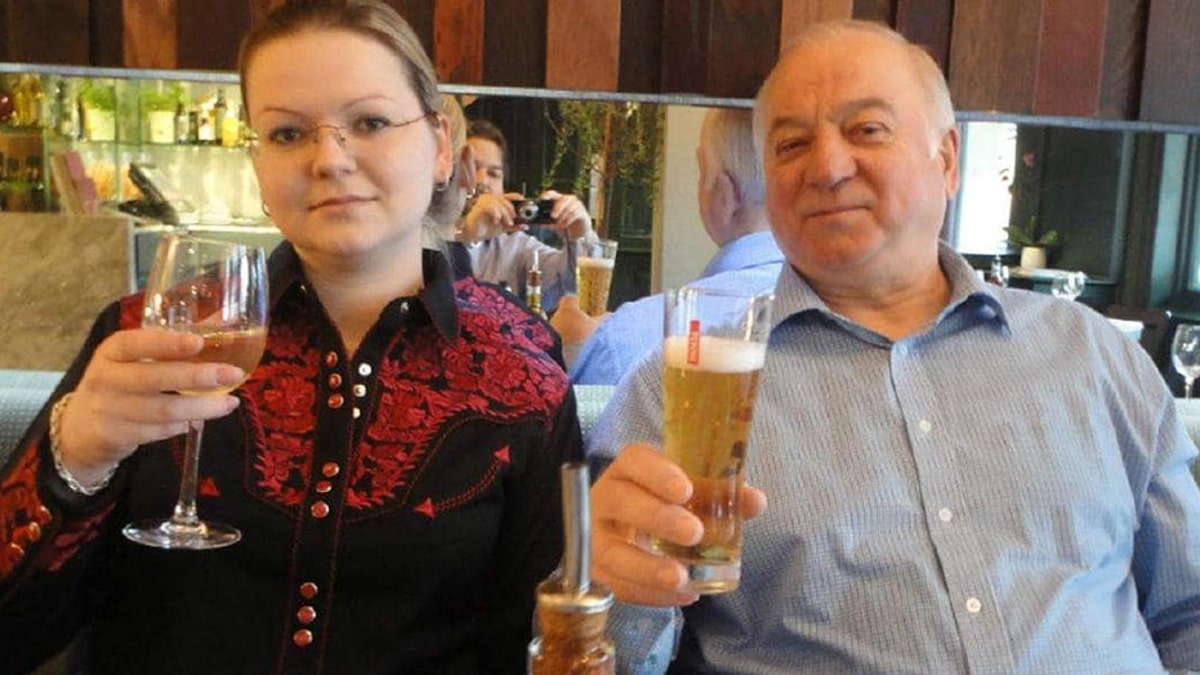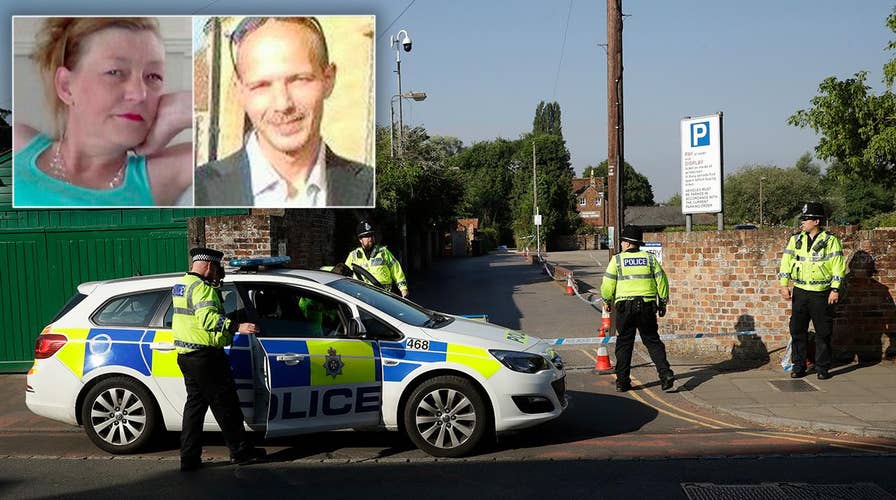Police: UK couple poisoned by toxin in nerve agent
Couple remains in critical condition after being poisoned by the same nerve agent as an ex-Russian spy. Benjamin Hall has the story.
A British couple poisoned with the same nerve agent that nearly killed former Russian spy Sergei Skripal and his daughter in March were likely not directly targeted but sickened as a consequence of the previous attack, officials said.
Specialists announced Wednesday that the couple, identified by multiple media outlets as Charlie Rowley, 45, and Dawn Sturgess, 44, were poisoned by Novichok, the same lethal toxin – developed by the Soviet Union – that almost killed Sergei and Yulia Skripal. The new victims were both in critical condition and were in the same hospital that treated the Skripals.

Charlie Rowley and Dawn Sturgess have been hospitalized in critical condition. (Facebook)
"The working assumption would be that these are victims of either the consequence of the previous attack, or something else, but not that they were directly targeted," British Security Minister Ben Wallace told the BBC.
"I think what we said at the time was that this was a brazen and reckless attack in the heart of a very peaceful part of the United Kingdom, and that is part of the anger I feel about the Russian state ... that they chose to use clearly a very, very toxic, highly dangerous weapon,” he continued.
UK COUPLE WERE POISONED BY SAME NERVE AGENT AS EX-RUSSIAN SPY, POLICE SAY
Wallace called on Russia to “fill in some significant gaps that we are trying to pursue” in regards to the attack on the former Russian spy and his daughter.
“The Russian state could put this ‘wrong’ right. They could tell us what happened, what they did and fill in some of the significant gaps that we are trying to pursue,” he said.
“I’m waiting for the phone call from the Russian state.”

Sergei and Yulia Skripal were found poisoned in a Salisbury park this past March.
Authorities believed the couple was exposed to the nerve agent from a location that was not decontaminated after the attack on the Skripals, British Home Secretary Sajid Javid said Thursday.
Javid has called on Russia to “explain the nerve agent poisoning” following the second incident.
Britain blamed Russia for the March attack, while Moscow denied all allegations. In response, more than two dozen Western allies, including the U.S., ordered out over 150 Russian diplomats in a show of solidarity. In response, Russia ordered out 60 U.S. diplomats and closed the consulate in St. Petersburg in a tit-for-tat response.
A Russian lawmaker has called the second case of poisoning with Novichok a British-led effort to tarnish the Russia-hosted World Cup and fuel tensions ahead of a planned U.S.-Russian summit.
The unexplained poisoning of two British citizens with no immediately apparent link to Russia has raised public health concerns in the Salisbury area, where a massive decontamination effort took place after the Skripals were found to have been poisoned with Novichok.
Sergei Zheleznyak, a member of the Russia parliament's foreign affairs committee, said the poisoning of the couple was "a continuation of an anti-Russian PR hysteria that British authorities are trying to create."
On Saturday, officials were called to a house in Amesbury after Sturgess collapsed. Later that day, Rowley also became sick, the BBC reported. Police initially believed the couple was using contaminated heroin or crack cocaine. The home where the couple collapsed was located about eight miles from where the Skriprals were poisoned.
TRIAL BEGINS FOR EX-ISRAELI MINISTER CHARGED AS IRAN SPY
Sturgess was “foaming at the mouth” at the time of the incident and Rowley “started rocking against the wall,” Sam Hobson, a friend, told the BBC.
"His [Rowley’s] eyes were wide open, glazed and pinpricked, and he was sweating, dribbling and making weird noises,” Hobson said.
Police cordoned off a home in Amesbury, believed to be Rowley's, and other places the pair visited, including a church, a pharmacy and a park in Salisbury, near where the Skripals were found.
Police said it was not clear “what the nerve agent was contained in” but one theory suggested the poison could have been left over from the attack on the Skripals.
After spending weeks in critical condition, the Skripals were released from the hospital and taken to an undisclosed location for their protection. Doctors say they don't know what the long-term prognosis is.
Fox News' Samuel Chamberlain and the Associated Press contributed to this report.


